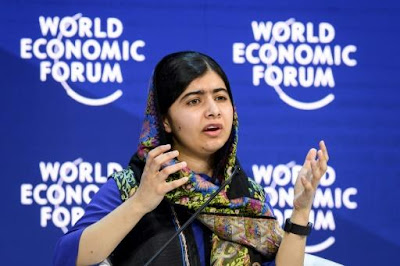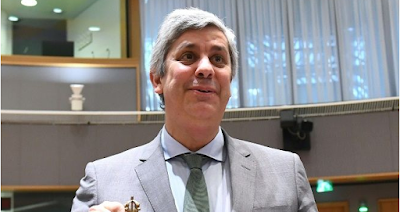Yahoo – AFP,
Oleksandr SAVOCHENKO, January 10, 2018
 |
Solar power is a way to make use of the area around Chernobyl that is still
heavily polluted after the 1986 catastrophe (AFP Photo/Genya SAVILOV) |
Chernobyl
(Ukraine) (AFP) - At ground zero of Ukraine's Chernobyl tragedy, workers in
orange vests are busy erecting hundreds of dark-coloured panels as the country
gets ready to launch its first solar plant to revive the abandoned territory.
The new
one-megawatt power plant is located just a hundred metres from the new
"sarcophagus", a giant metal dome sealing the remains of the 1986
Chernobyl accident, the worst nuclear disaster in the world.
"This
solar power plant can cover the needs of a medium-sized village", or about
2,000 flats, Yevgen Varyagin, the head of the Ukrainian-German company Solar
Chernobyl which carried out the project, told AFP.
The solar
installation is to go on stream within weeks, the company says.
The group
has spent one million euros on the structure which has about 3,800 photovoltaic
panels installed across an area of 1.6 hectares, about the size of two football
fields, and hopes the investment will pay for itself off within seven years.
Return of
industry
Eventually,
the region is to produce 100 times the initial solar power, the company says.
The amount
of sunshine "here is the same as in the south of Germany," says
Varyagin.
Ukraine,
which has stopped buying natural gas from Russia in the last two years, is seeking
to exploit the potential of the Chernobyl uninhabited exclusion zone that
surrounds the damaged nuclear power plant and cannot be farmed.
Reactor
Number Four of the Chernobyl plant exploded April 26, 1986 and the fallout
contaminated up to three quarters of Europe, according to some estimates,
especially hitting Russia, Ukraine and Belarus.
Following
the disaster, Soviet authorities evacuated hundreds of thousands of people and
this vast territory, over 2,000 square kilometres wide, has remained abandoned.
The plant
continued to operate the remaining reactors, the last of which was shut down in
2000, ending industrial activity in the area.
People
cannot return to live in the zone for "more than 24,000 years",
according to the Ukrainian authorities, who nevertheless argue that a prudent
industrial use can be possible again.
"This
territory obviously cannot be used for agriculture, but it is quite suitable
for innovative and scientific projects," Ostap Semerak, Ukrainian Minister
of the Environment and one of the promoters of placing solar projects in
Chernobyl, told AFP in 2016.
The
installation of a huge dome above the ruins of the damaged reactor just over a
year ago made the realisation of the solar project possible.
 |
Solar power
production at Chernobyl will start off with one megawatt but is to
rise
100-fold eventually (AFP Photo/Genya SAVILOV)
|
Special
price
Funded by
the international community, it covered the old concrete structure which had
become cracked and unstable, to ensure greater isolation of the highly
radioactive magma in the reactor.
As a
result, radiation near the plant plummeted to just one-tenth of previous
levels, according to official figures.
Even so,
precautions are still necessary: the solar panels are fixed onto a base of
concrete blocks rather than placed on the ground.
The soil
remains contaminated, explains Varyagin, whose group is a joint venture between
the Ukrainian firm Rodina Energy Group and Germany's Enerparc AG.
"We
can not drill or dig here because of the strict safety rules," he says.
Last year
the consortium completed a 4.2-megawatt solar power plant in the irradiated
zone in neighbouring Belarus, not far from Chernobyl.
Ukrainian
authorities offered investors nearly 2,500 hectares (25 square kilometres) for
potential construction of solar power plants in Chernobyl.
Kiev has
received about 60 proposals from foreign companies - including American,
Chinese, Danish and French - who are considering participating in future solar
developments in the area, according to Olena Kovalchuk, spokeswoman of the
State Administration for the zone of Chernobyl.
Investors
are attracted by the price that Ukraine has set for solar electricity, which
"exceeds on average by 50 percent of that in Europe", Oleksandr
Kharchenko, executive director of the Energy Industry Research Center, told
AFP.
He adds
that cheap land and the proximity of the power grids makes Chernobyl
particularly attractive, though there is still no rush of western investors to
the region.
Safety
concerns and Ukraine's notorious bureaucracy and corruption has put some off.
"It is
very important to have guarantees that working in the Chernobyl zone will be
safe for those who will be doing it," says Anton Usov, adviser to the
European Bank for Reconstruction and Development (EBRD).
The bank
does not currently foresee any investment to Ukraine in this field.




























